
Land Grabbing is Back – This Time Risks are Even Greater
Fifteen years on from the ‘land rush’, a multi-pronged global land squeeze is forcing farmers and communities off the land – and Europe has a key role to play in fixing it. […]

Fifteen years on from the ‘land rush’, a multi-pronged global land squeeze is forcing farmers and communities off the land – and Europe has a key role to play in fixing it. […]

Quite quickly, Ireland has seen the kind of land concentration more familiar in other parts of Europe. Various pressures are coming to bare on access to land, including the desires of the very wealthy to build up an asset bank. Daniel Long is a young dairy farmer from south Tipperary, which has seen hugely inflated prices paid by billionaires for land. What impact does this have, including on how young people and their future in farming? Long also outlines the beginnings of a campaign to draw attention to this issue, while making the case for a Land Observatory in Ireland. […]
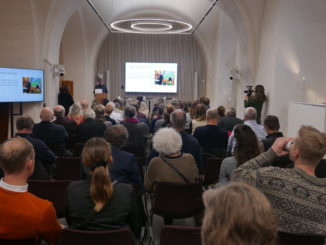
What actually unfolds in the Danish land-market is clouded in secrecy. At the heart of the matter is the lack of a ownership-register or monitoring entity, which could provide clarity and transparency as to who actually owns the Danish agricultural land. […]
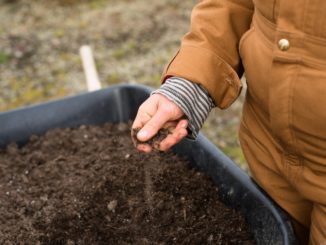
What levers do France and Germany have for adapting land policies to regional and local realities? After looking at regional public policies, consider the work of Terre de Liens in France and Regionalwert-AG in Germany, which are working to make farmland available for new entrants and agricultural renewal in these two major European countries. […]
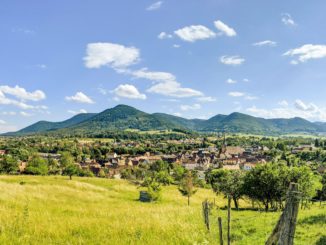
How to distribute agricultural land for more resilient agriculture… without Europe-wide legislation? Policy analysis comparing access to land in France and Germany, by Marie-Lise Breure-Montagne. […]
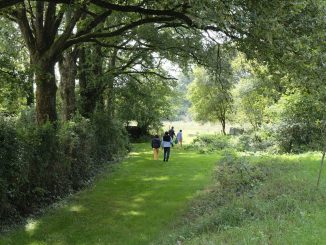
Access to land was the topic of a panel discussion at our rural resilience gathering in north-west France last week. To add to the conversation, we present our findings from research on the ground, over the past two years of the “Nos Campagnes en Résilience” project. In the first of a series on hot topics around transition, we look at land, water and soil – all pivotal issues for socio-ecological transition. Analysis by “Nos Campagnes en Résilience” team. […]
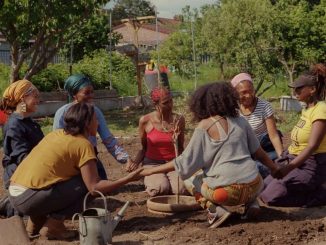
The racialised history of British soil has consequences that are very much felt today. However where industrial scale farming is failing, the grassroots is doing what it does best, building fertile ground for a new food system that nurtures diversity. High-profile agroecology events such as this weekend’s Land Skills Fair are spotlighting land justice. This is thanks to the work of many projects that together are gradually shifting the ground for land justice. Ursula Billington reports. […]
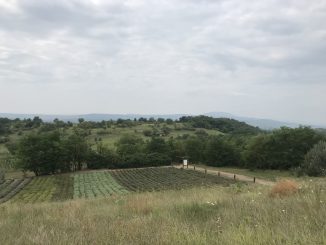
Rural Hungary has been Viktor Orbán’s ticket to three terms in power. With the April 2022 elections approaching, is there a chance for emancipation from authoritarian populist rule to arise from this very same countryside? Drawing on original research, Péter József Bori and Noémi Gonda argue that by reforming our ways of producing food, we can also initiate a radical reform of the undemocratic systems that govern us. Final installment of an exclusive three-part series. […]
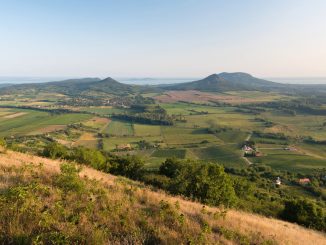
Our second installment here explains how Orbán and his FIDESZ party backtracked on their promises after their election in 2010. What followed is a decade of land grabbing, destructive agricultural transformation and the alienation of Hungary’s last smallholders – all while maintaining the image of a pro-peasant government. Original research by Péter József Bori and Noémi Gonda. […]
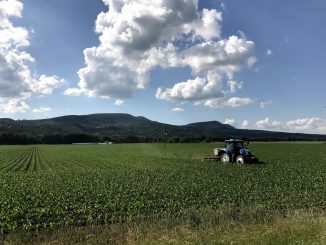
In Viktor Orbán’s Hungary, the rural vote will have a crucial role to play in the upcoming April elections. Orbán has been milking farmers’ grievances for over a decade. Have the nation’s smallholders had enough? Revealing the findings of new research, Péter József Bori and Noémi Gonda track the progress of feudal dynamics in the Hungarian countryside. First in a three-part series. […]
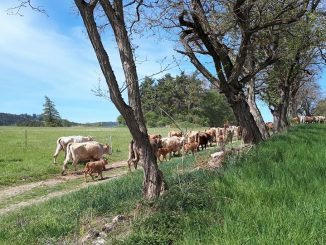
Louise Kelleher speaks to Czech farmer Terezie Daňková about the Kafkaesque barriers to agroforestry in the Czech Republic. Land tenure is a major issue with a disproportionate number of Czech farmers who work on the farm, compared to non-farming landowners. […]
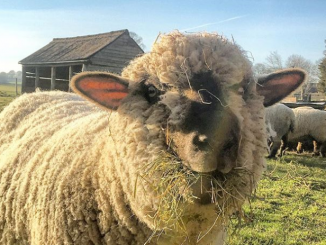
The New Year gets off to an exciting start with the Oxford Real Farming Conference on January 5th-7th 2022. Back online this year, the conference has added social justice strings to its bow with new partners that focus on land rights and equality. As well as the traditional menu of sessions on sustainable farming practices and policy, food sovereignty and supply chains, the event will bring in indigenous perspectives from around the globe. Ursula Billington reports on what not to miss. […]
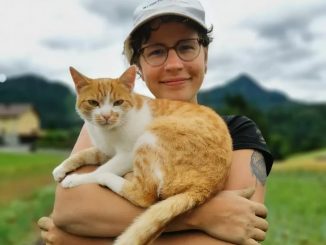
Isabella Lang has been working on her friends’ farm in the Austrian Alps since the spring. After four years in the Brussels bubble, she was keen to get her hands back in the soil. It’s been several months of hard work, long days, amazing food, and a healthy pace of life. In this first letter Isabella introduces us to the farm. Meet the new peasants. […]
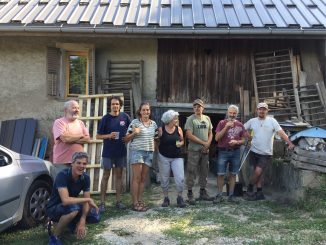
In this excerpt from the book “Rural Europe on the Move: A travel guide to transitions”, Philippe Barret tells the story of Beaufortain, a community in the French Alps that has been coming together to practice rural sustainability since the 17th century. Beaufortain also happens to be the home of ARC2020’s project to build rural resilience in France – “Nos campagnes en résilience”. In this chapter you’ll meet some of the key people involved in this latest venture: coordinator Valérie Geslin, volunteer Jeanine Sochas, and farmer Pierre Gachet. […]
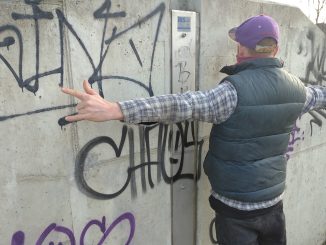
We’re back with Czech livestock farmer Josef, who says we need to trust farmers more. Farmers will make responsible decisions unless the system forces them to act irresponsibly. And he explains why the future of farming is in forgotten places. […]
Agricultural and Rural Convention